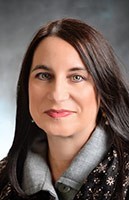 |
In a time of ongoing budget shortfalls, many educators are feeling the pinch and struggling for ways to afford professional development (PD) and easily accessible, inexpensive resources for class activities and learners. Attending an international conference like TESOL can be financially prohibitive, with costs approaching $3,000 or more; most of us have come to accept that self-financing our own PD is one of the costs of doing business. For many, though, quality PD may be economically out of reach-at a challenging time when it may be most needed. Students face increasing challenges as well, struggling to afford pricey textbooks. Many are so attuned to free and easy access to online and streaming resources that they refuse to purchase required materials, leaving educators with a choice: penalize students for their refusal to purchase course materials or offer them for free or reduced cost to ensure that learning remains dynamic and accessible. Motivated by recent ANPC discussions and requests for options here, I share a few of my go-to strategies for free-or nearly-free-resources for teachers and learners:
Professional Development: Organizations' websites offer free resources, newsletter sign-ups, and videos. Colleagues are some of the best sources of PD as well.
-
National Council of Teachers of English (NCTE): Abounds with PD resources plus suggestions for virtual and online teaching and learning.
-
TESOL: Each TESOL Affiliate is entitled to seven complimentary memberships to the international TESOL organization, unlocking a world of PD and resources. Contact your local TESOL affiliate leaders for more information. There are numerous YouTube videos of past webinars on the TESOL YouTube channel that teachers can explore.
-
Cambridge English Language Assessment: Includes free resources for teachers plus a series of regular, free, live-streamed webinars.
-
Teacher Study Groups: Draw on local expertise with colleagues offering regular themed study groups in person or online. Ongoing peer-to-peer PD and coaching are among the most effective ways for teachers to implement new ideas.
-
Edutopia offers excellent tips for professional learning community facilitation.
Teaching Materials and Resources:
-
Z Courses: Increasingly, colleges and universities offer "Z-courses," or courses (and even degrees!) with zero-textbook required; instead, instructors provide electronic materials and resources. Work with your colleagues to offer a few Z-courses on your campus; Montgomery College offers suggestions.
Digital Video Production, Interactive Learning, and Streaming Services: Many companies offer free trial versions or discounts for educational organizations.
-
Kanopy: Accessible through public libraries and universities, offers access to thousands of free films.
-
JustWatch: Guide for movies, TV shows, and sports, showing comparative prices and even freebies for specific titles from the major internet streaming services.
Realia: Even in the digital age, nothing beats the real thing. When technology introduces distractions into the classroom or learners don't readily have access to devices, realia is particularly useful. Free or inexpensive realia is easily obtainable through:
-
Stores: Large chain supermarkets and department stores have free flyers, magazines, or catalogs at their entrances and exits, all of which can offer easy, go-to lesson ideas.
-
Restaurant Takeout Menus: Paper copies of menus offer additional realia and help advertise and support local businesses.
-
Tourist Bureaus and Visitors Centers: Offer free brochures, maps, posters, and other sources of information easily turned into lessons; often, they'll ship materials for free.
-
Thrift Stores: Low prices for gently used clothing, costumes, household goods, boardgames, and books can easily become classroom resources, with your purchase supporting local charities. Discount days further reduce the price of items.
-
Recycling Centers: Source for old magazines, books, and newspapers plus "freecycle" stands with discarded materials for the taking.
-
Libraries: Many host book sale donation days where books can be purchased on the cheap.
-
Junk Mail: Often quickly tossed, ads make for ready teaching materials. Don't forget to blot out or remove personal identifiers!
-
Local Experts: Community members and business leaders will happily visit classrooms or record videos of their experiences. Remind guests to add their service to their resumes or CVs; community service can even help enhance their careers.
-
Show and Tell: Finally, students of all ages love the tried-and-true "show and tell". Assign students to bring a favorite small object to class (e.g., shell, stone, figurine, jewelry, photo, etc.) then build an engaging discussion activity around them.
Karen L. Newman, Ph.D., is Associate Professor of English at the University of Indianapolis. Educated at the University of California, Irvine and Indiana University, Bloomington, her interdisciplinary work includes culture, language, arts, mentoring, service-learning, TESOL teacher education, and international education. She has taught at Indiana University, Ohio State University, and Ningbo Institute of Technology in China, and has offered ESL/EFL courses and teacher workshops in Germany, Austria, Korea, China, Chile, and the U.S. She served as director of a $1.5 million U.S. Department of Education grant-funded project for ESL and content teachers in Ohio and has spent more than 20 years of her life studying, working, and living abroad. She serves as a board member of the Bloomington, Indiana-based nonprofit arts organization, Women Writing for (a) Change and is currently pursuing a passion to learn Modern Greek. |

